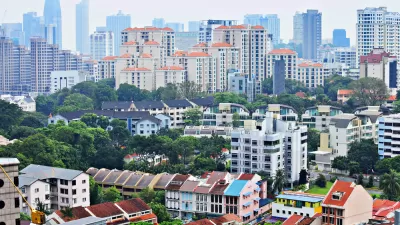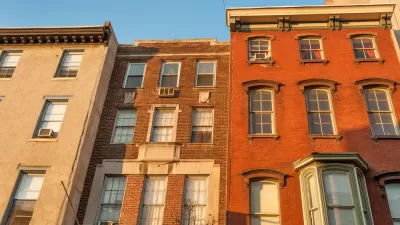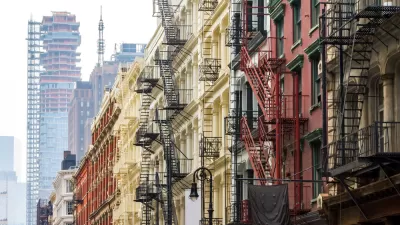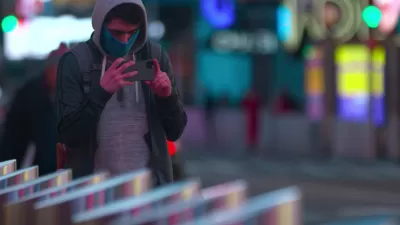According to this article, it would be a shame if the coronavirus inspires new levels of skepticism about density and city living.

Emily Badger writes of a painful realization in major cities during the pandemic: “The very thing that makes cities remarkable — the proximity of so many people to one another — is now making them susceptible in a pandemic. Density, suddenly, is bad for our health. And we are trying everything we can think of to dismantle it.”
But Badger writes in response to that realization, in an attempt to, “reconcile the benefits of density for a healthy society with the threat of density in a pandemic…” There is plenty of evidence available to accomplish that goal.
In practical ways, density makes possible many of the things we need when something goes wrong. That is certainly true of hospital infrastructure — emergency response times are faster, and hospitals are better staffed in denser places. When one store is closed or out of toilet paper, there are more places to look. When people can’t leave home for essentials, there are alternative ways to get them, like grocery delivery services or bike couriers. When people can’t visit public spaces, there are still ways to create public life, from balconies, porches and windows.
More examples of the benefits of density—and the shortcomings of sprawl—follow, to make that point that density has been good for us, and will be again soon.
Planetizen collected previous articles on either side of this theme in a previous article, "Debating the Future of Cities, and Urban Density, After the Pandemic."
FULL STORY: Density Is Normally Good for Us. That Will Be True After Coronavirus, Too.

Alabama: Trump Terminates Settlements for Black Communities Harmed By Raw Sewage
Trump deemed the landmark civil rights agreement “illegal DEI and environmental justice policy.”

Study: Maui’s Plan to Convert Vacation Rentals to Long-Term Housing Could Cause Nearly $1 Billion Economic Loss
The plan would reduce visitor accommodation by 25% resulting in 1,900 jobs lost.

Planetizen Federal Action Tracker
A weekly monitor of how Trump’s orders and actions are impacting planners and planning in America.

Waymo Gets Permission to Map SF’s Market Street
If allowed to operate on the traffic-restricted street, Waymo’s autonomous taxis would have a leg up over ride-hailing competitors — and counter the city’s efforts to grow bike and pedestrian on the thoroughfare.

Parklet Symposium Highlights the Success of Shared Spaces
Parklets got a boost during the Covid-19 pandemic, when the concept was translated to outdoor dining programs that offered restaurants a lifeline during the shutdown.

Federal Homelessness Agency Places Entire Staff on Leave
The U.S. Interagency Council on Homelessness is the only federal agency dedicated to preventing and ending homelessness.
Urban Design for Planners 1: Software Tools
This six-course series explores essential urban design concepts using open source software and equips planners with the tools they need to participate fully in the urban design process.
Planning for Universal Design
Learn the tools for implementing Universal Design in planning regulations.
Caltrans
Smith Gee Studio
Institute for Housing and Urban Development Studies (IHS)
City of Grandview
Harvard GSD Executive Education
Toledo-Lucas County Plan Commissions
Salt Lake City
NYU Wagner Graduate School of Public Service





























